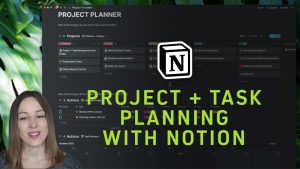“Hey, I have ADHD and I’m a student of yours. The course looks great, but every time I go back to it, I quickly get overwhelmed. What do I do?”

The popularity of online courses soared during Covid, offering unparalleled convenience and accessibility for learners around the world. Nearly anything you want to learn is available at your fingertips with the click of your mouse.
However, for individuals with ADHD, the fast-paced, self-directed nature of the virtual learning landscape presents unique challenges that can exacerbate ADHD-related difficulties, quickly leading to feelings of overwhelm.
This is not to say that only people with ADHD experience feelings of overwhelm when taking online courses. It’s a challenge for many to complete self-study online courses, especially as the barrier to creating online courses has never been lower.
Almost anyone can create and launch online courses without any training or experience with adult learning or user experience design principles, and most online courses aren’t held to any kind of academic standard or credentials. Students essentially depend on teachers to design learning experiences that can meet a variety of needs.
As an online teacher with ADHD, I am curious about how we can design courses to meet different neuro-types, and give people different learning pathways while simultaneously keeping overwhelm manageable.
As a student with ADHD, I am especially curious about the delicate relationship between intense interest in a topic, and our ability to get overwhelmed or discouraged when learning new information.
Let’s unpack some of the reasons behind feelings of overwhelm, then explore strategies for managing them.
While the examples below are written with ADHD in mind, they are still widely applicable to those without; keep an open mind!
Understanding overwhelm in online learning
- Executive Functioning Deficits: ADHD often involves executive functioning deficits, making it challenging to plan, organize, and manage time effectively. Online courses often require learners to structure their own learning schedules and manage assignments, which can be overwhelming for individuals struggling with executive functions*.
*Executive functions are a set of cognitive processes that enable individuals to plan, organize, initiate, and execute tasks and behaviors in a goal-directed manner. They include functions like working memory, time management, planning, problem-solving, task initiation, emotional regulation, etc.
Even those without ADHD can experience these deficits when under chronic stress, not eating well, poor sleep hygiene, etc. - Information Overload: Online courses offer a wealth of information in various formats, such as videos, texts, and interactive elements. This barrage of content can be overwhelming, especially when learners find it challenging to filter and prioritize essential information.
- Lack of External Structure: Traditional classroom settings provide a structured environment with scheduled classes and in-person guidance. Online courses, however, demand self-discipline and initiative, which can be particularly demanding for individuals with ADHD who thrive in structured environments.
- Difficulty Sustaining Attention: Maintaining focus during online learning can be difficult, given the potential for distractions and the temptation to switch between tasks. As a result, learners with ADHD might struggle to fully engage with course material, leading to feelings of overwhelm and frustration.
Embracing overwhelm as a catalyst for growth

A certain degree of overwhelm can be beneficial, but it’s essential to strike a balance, as excessive and chronic overwhelm can be counterproductive and detrimental to learning and well-being. Too much overwhelm can lead to burnout, reduced motivation, and hindered performance. Managing overwhelm involves understanding when it becomes excessive and implementing strategies to navigate it effectively.
Each person’s journey is unique, and finding the right balance and strategies that work for you is essential for a fulfilling online learning experience.
Why a certain degree of overwhelm can be beneficial:
- Stretching Comfort Zones: Overwhelm often arises when we step outside our comfort zones and take on new challenges. Embracing discomfort and pushing ourselves beyond familiar territory are essential for growth. It’s during these moments of overwhelm that we expand our capabilities and gain new skills.
- Making Positive Change: Overwhelm can actually be a catalyst for positive change. When we’re faced with big challenges, it can light a fire under us to find solutions, adapt our approach, and build our resilience. We become like superheroes, overcoming obstacles with creativity and determination.
- Getting a Deeper Understanding: Overwhelm can indicate that we are dealing with complex and intricate subject matter. But, hey, that struggle to understand and put it all together? That’s how we truly grasp the subject matter and sharpen our critical thinking skills.
- Embracing Uncertainty: Learning often involves exploring the unknown, and this uncertainty can lead to feelings of overwhelm. But here’s the secret: embracing that unknown journey helps us develop a growth mindset and become more comfortable with life’s uncertainties.
- Becoming Emotionally Savvy: Overwhelm can stir up a rollercoaster of emotions—from frustration to excitement and everything in between. But guess what? Navigating through those emotions teaches us emotional intelligence and self-awareness.
- Finding What Truly Matters: Overwhelm can sometimes feel like we’re drowning in a sea of tasks. But hold on tight because it can also reveal what’s really important. When we’re overwhelmed, we’re forced to prioritize and focus on what truly matters to us. It’s like unlocking a secret to managing our time and energy better. (We address this in our Capacity Planning Workshop)
Strategies for minimizing and managing overwhelm
With commitment, self-compassion, and the right support, you can harness the potential of online courses while keeping overwhelm manageable.
- Set Sail with Intent: Reiterate your intention for signing up for the course in the first place. Chart your course by setting clear intentions and crafting daily (or weekly) routines that honor your unique rhythm. Consistent routines can also improve time management and reduce procrastination tendencies.
Can you set aside a specific time of day or day of the week for your studies? - Break Tasks into Smaller Steps: Embrace the beauty of small steps, breaking down course materials into smaller, bite-sized chunks. This approach helps create a sense of accomplishment and progress, reducing the feelings of being overwhelmed by the course workload.
Can you set a tiny goal to spend 15 mins learning? Or decide on one small lesson to tackle? - Utilize Visual Organizers and Tools: Visual aids, such as calendars, to-do lists, and task managers, can help you stay organized and on track. Digital tools and apps designed for task management can be particularly helpful in managing assignments and deadlines effectively. In Notion Mastery we provide students with a *Notion-based interactive learning journey so they track their progress as they complete lessons.
- Designate a Dedicated Study Space: Designate a specific study area that is free from distractions. Find a space you can associate with learning and productivity, helping signal the brain that it’s time to focus. Make it a ritual: make your favorite drink, put on a diffuser, get comfortable.
How can you make the study experience more sacred or enjoyable? - Practice Mindfulness and Stress Reduction: Mindfulness can help increase self-awareness, manage anxiety, and improve attention span during online learning sessions. If you notice yourself getting frustrated or overwhelmed, can you get a little more curious? Feeling “bad” at something as an adult can be very confronting and/or uncomfortable, but a bit of discomfort is necessary for learning!
What feelings are being activated, and why? - Incorporate Interests into Learning: Whenever possible, align course materials with your personal interests. Engaging with subjects you’re passionate about can enhance intrinsic motivation and make the learning experience more enjoyable.
How can you make your current studies even more enjoyable? - Manufacture Urgency: We know that the ADHD brain can benefit from a sense of urgency. With self-study courses you’re often left without true deadlines; how might you create a sense urgency or adopt a finishing mindset?
What would it feel like to be on the other side of completion? - Skip the Unnecessary: Not every lesson or module will be relevant or helpful to you. While it’s tempting to adopt a completionist mindset (finish all the lessons, get all the gold stars!), consider whether or not you can skip lessons and access just what’s necessary right now to create some momentum. You can always revisit material later when motivation is higher.
- Reach Out for Support: Many online courses have built-in discussion forums or chat features where learners can connect and share their experiences. Does the course you’re taking offer a support forum? Can you seek support from instructors, fellow students, or peers when feeling overwhelmed? Make sure to take advantage of these resources!
Remember that mastering new skills requires some element of overwhelm; resist the urge to believe it should be easy. Are you expecting to master new topics while already distracted and overwhelmed? What is your headspace when approaching your studies?

Understand the connection between overwhelm and learning, and ensure you have the energy and mental space available for your studies.
If you’re feeling a sense of panic or overwhelm from your mounting to-do list, you’re not exactly going to be primed for getting out of your comfort zone and learning new things.
How can you clear the decks and make intentional space for learning, so it’s not something you’re trying to squeeze between other commitments?
It’s definitely not easy to complete self-study online courses. I know I certainly have a trail of online courses I purchased with the best intentions, only to have consumed a single lesson or module before eventually giving up. It doesn’t feel good to waste money or feel like we’ve failed to follow through on something we committed to.
But if we can approach our learning with more curiosity and self-compassion, we can navigate overwhelm and achieve our learning goals more effectively.
Tune in to what your overwhelm might be telling you, and you’ll have a better idea of what strategies to lean on:
Have too many commitments, and feeling a bit panicked?
Break things up into small tasks. Skip the unnecessary.
Distracted or having trouble focusing?
Reconnect to your original intention. Designate a dedicated study space.
“I don’t know where to start.”
Break things up into small tasks. Reach out for Support.
Experiment with a few of the strategies above, and see if you can’t get back on track with your course goals. If the overwhelm persists, perhaps it’s best to close the chapter on this online course, and free up that bandwidth for energy-giving activities. Don’t fall victim to sunk cost fallacy; it’s ok to close the door on things that are no longer aligned with our needs.
Best of luck to you in your future learning journeys!
[*For full disclosure, I’m a *Notion Partner, so when you sign up with my link, you also help support me and my content!]



Leave a Reply